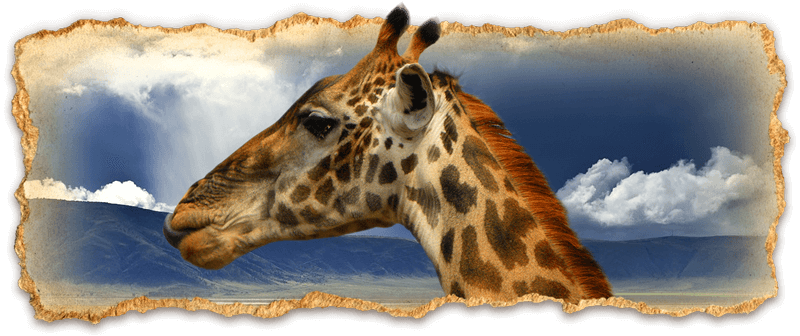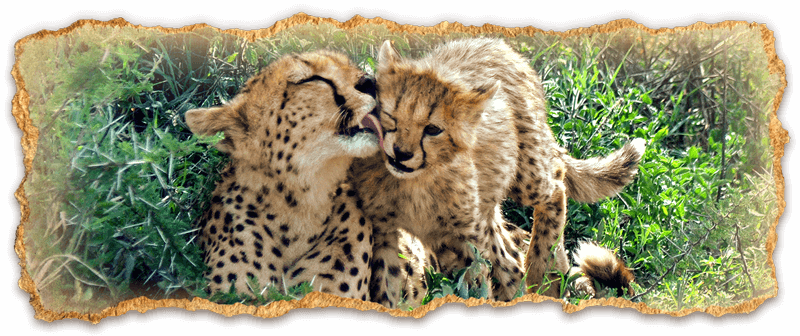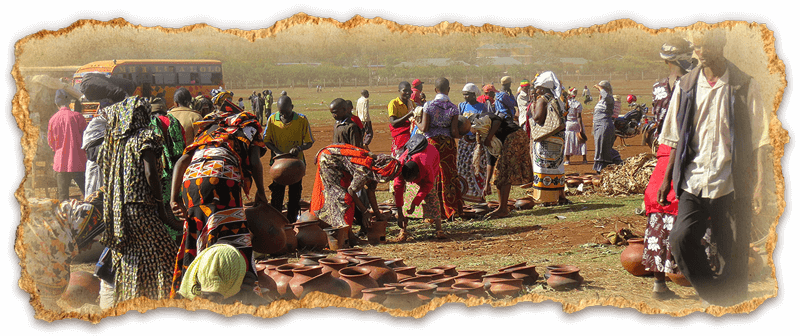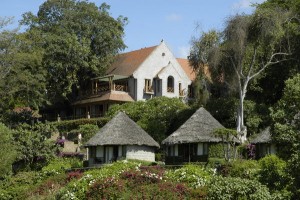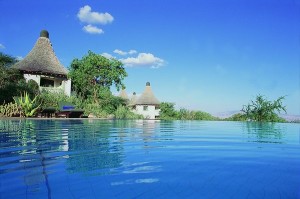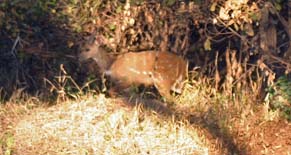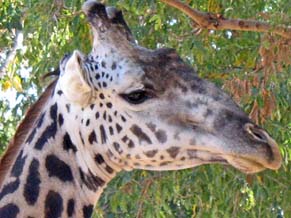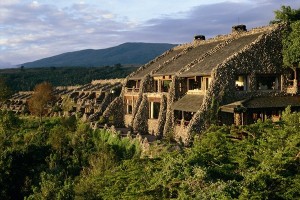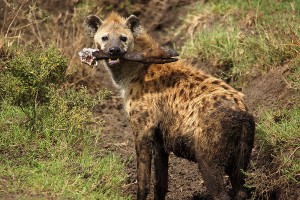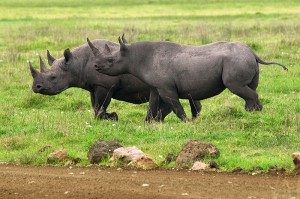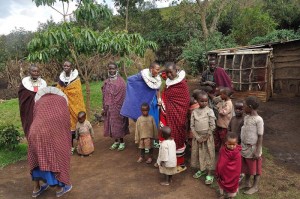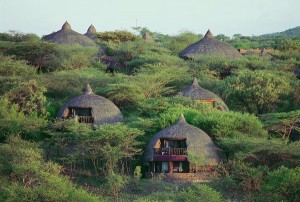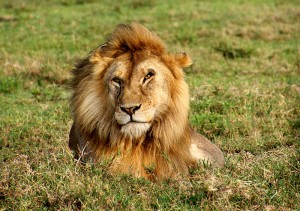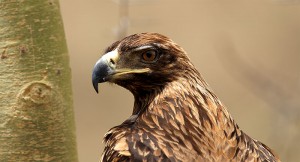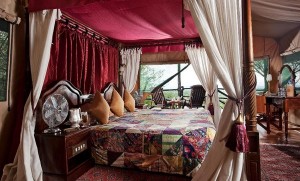Serena Wildlife Escape
~ Luxury Safari ~
~ Luxury Safari ~
The best season for this departure is mid-May—October
Safari Overview
Our Luxury Serena Wildlife Safari offers accommodations at Superior+ Lodges and gives you the opportunity to learn and discover Northern Tanzania Parks and destinations, such as the Great Rift Valley Escarpment, Ngorongoro Crater, and the vast Serengeti Plains.
9 days
8 nights
- Safari Highlights:
- Excellent concentration of Wildebeest Migration (between mid-May and mid-June).
- Enjoy superior accommodations including, Kirawira Tented Camp, which is a member of Small Luxury Hotels of the World.
- Discover nature on foot as you participate on a Nature Walk on top of the Great Rift Valley Escarpment.
- See the abundance and diversity of wildlife including the rare Black Rhino in Ngorongoro Crater.
- Explore the vast Serengeti Plains as you spend two nights in Central Serengeti and two nights in Western Serengeti; a home to the big cats such as Lions, Leopards and Cheetahs.
- Capture the beautiful landscape and scenery from a birds-eye view while flying over the Serengeti, on your return flight back to Arusha.
Itinerary
Luxury Serena Wildlife Safari: Discover Northern Tanzania
Day 1
Arrive in Arusha, Tanzania
You will arrive at Kilimanjaro International Airport (JRO) by your international flight. Your driver guide will meet you at you at the airport and drive you to Lake Duluti Serena Hotel (or similar) for overnight (Bed & Breakfast).
About Lake Duluti Serena Hotel
Day 2
The Rift Valley in Lake Manyara
Drive to Lake Manyara Serena Safari Lodge for Lunch. Afternoon natures walk around the Rift Valley. Dinner and overnight at Lake Manyara Serena Safari Lodge (or similar).
About the Great Rift Valley
About Lake Manyara Serena Safari Lodge
Day 3
Lake Manyara Game Drive
Morning Game Drive in Lake Manyara National Park. Lunch at Lake Manyara Serena Safari Lodge. Afternoon drive to Ngorongoro. Dinner and overnight at Ngorongoro Serena Lodge (or similar).
About Lake Manyara National Park
About Ngorongoro Serena Lodge
Day 4
Ngorongoro Crater
A full day Ngorongoro Crater tour with picnic Lunch. Overnight at Ngorongoro Serena Lodge (or similar).
About Ngorongoro Crater
Day 5
Maasai Village and Olduvai Gorge Museum
Drive to Serengeti National Park, en route visit Maasai Village and Olduvai Gorge Museum. Enjoy your picnic Lunch on the way. PM continue to Serengeti National Park doing Game Run en route. Dinner and overnight at Serengeti Serena Lodge (or similar).
About Maasai Village
About Olduvai Gorge Museum
About Serengeti Serena Lodge
Day 6
Serengeti National Park
Morning and Afternoon Game Drive at Serengeti National Park. Dinner and overnight back at Serengeti Serena Lodge (or similar).
About Serengeti National Park
Day 7
Journey to the West
Game Drive to Western Serengeti, Lunch at Kirawira Luxury Tented Camp, Afternoon Game Drive in the West. Overnight at Kirawira Luxury Tented Camp (or similar).
About Western Serengeti
About Kirawira Luxury Tented Camp
Day 8
The Western Serengeti
Morning and afternoon Game Drive in the Western Serengeti (option of visiting Lake Victoria for an extra charge). Overnight at Kirawira Luxury Tented Camp (or similar).
About Lake Victoria
Day 9
Return Flight to Arusha
After Breakfast, enjoy a birds-eye view flight over the Serengeti Plains, en route back to Arusha. Lunch and day room at Lake Duluti Serena Hotel. In the evening, transfer to Kilimanjaro International Airport (JRO) for your international flight back home.
- Inclusions:
- Respective accommodation or similar throughout as indicated.
- All meals on main tour as shown (except day 1 at Bed & Breakfast).
- All game drives with photographic roof hatch land cruiser driven by a professional driver guide.
- All transfers as per the itinerary.
- Complimentary bottled water during game drives.
- Tips to waiters.
- All national park entry fees and Olduvai Museum entry fee.
- Visit to Maasai Village.
- Exclusions:
- Entry VISA and local airport tax.
- Personal and baggage insurance.
- Excess baggage charges levied by airline.
- Meals and beverages other than specified.
- Tips to your driver guide.
- Tips to porters.
- Cost for anything not mentioned on the list above.
Accommodations
Our Luxury Serena Wildlife Safari Features Superior+ Accommodations
Lake Duluti Serena Hotel - Arusha
Nestled at the foot of the wooded slopes of Mount Meru, this unique hotel in Arusha Tanzania stands amid coffee plantations on the shores of tranquil Lake Duluti. Designed to echo the traditional style of the colonial coffee farm, which originally stood on this site, Lake Duluti Serena Hotel offers a range of tastefully presented cottage-styled rooms set amid extensive landscaped grounds. [learn more]
Manyara Serena Safari Lodge - Manyara National Park
Standing high on the edge of a towering terracotta escarpment with panoramic views over the glittering alkaline waters of Lake Manyara, Lake Manyara Serena Safari Lodge offers a unique blend of safari opportunities, peace and tranquillity, wildlife discovery, and ornithological richness. The unprecedented range of high-adventure sports, meanwhile, include mountain biking, canoeing and forest walks, while cultural choices include tours of the neighbouring villages and dance displays by the local Iraqw and sukuma people. [learn more]
Ngorongoro Serena Safari Lodge - Ngorongoro
Regularly voted one of the best hotels in the world, this unique lodge in Tanzania clings to the rim of the magnificent Ngorongoro Crater, the largest and most perfect volcanic crater on Earth. Long and low, the lodge is built from local river stone and camouflaged with indigenous vines. Decorated with cave paintings, the 75 rock-built rooms are strung around the Crater rim. Each has its own rock- enclosed balcony, and all enjoy completely uninterrupted views of the volcanic amphitheatre far below. [learn more]
Serengeti Serena Safari Lodge - Serengeti National Park
Centrally located adjacent to the famous Western Corridor and Grumeti River, the lodge has been designed to blend completely into the living landscape. A series of traditional domed ‘rondavels' are widely spaced throughout the grounds, which are cooled by groves of acacia trees and watered by sparkling streams. On the very edge of the ridge is a ‘vanishing horizon' pool, which looks out over the ‘endless plains' after which the Serengeti is named. [learn more]
Kirawira Serena Camp - Serengeti National Park
Ideally located on a hill of the famous Western Corridor with sweeping views of the Serengeti National Park. Accommodations include 25 elegant and spacious luxury tents raised on timber platforms, en-suite hot showers and toilets, with a large private deck/verandahs. Speke Bay activities include lake cruises, bird walks, canoe trips on Lake Victoria, and mountain bike trips. [learn more]
Nestled at the foot of the wooded slopes of Mount Meru, this unique hotel in Arusha Tanzania stands amid coffee plantations on the shores of tranquil Lake Duluti. Designed to echo the traditional style of the colonial coffee farm, which originally stood on this site, Lake Duluti Serena Hotel offers a range of tastefully presented cottage-styled rooms set amid extensive landscaped grounds. [learn more]
Manyara Serena Safari Lodge - Manyara National Park
Standing high on the edge of a towering terracotta escarpment with panoramic views over the glittering alkaline waters of Lake Manyara, Lake Manyara Serena Safari Lodge offers a unique blend of safari opportunities, peace and tranquillity, wildlife discovery, and ornithological richness. The unprecedented range of high-adventure sports, meanwhile, include mountain biking, canoeing and forest walks, while cultural choices include tours of the neighbouring villages and dance displays by the local Iraqw and sukuma people. [learn more]
Ngorongoro Serena Safari Lodge - Ngorongoro
Regularly voted one of the best hotels in the world, this unique lodge in Tanzania clings to the rim of the magnificent Ngorongoro Crater, the largest and most perfect volcanic crater on Earth. Long and low, the lodge is built from local river stone and camouflaged with indigenous vines. Decorated with cave paintings, the 75 rock-built rooms are strung around the Crater rim. Each has its own rock- enclosed balcony, and all enjoy completely uninterrupted views of the volcanic amphitheatre far below. [learn more]
Serengeti Serena Safari Lodge - Serengeti National Park
Centrally located adjacent to the famous Western Corridor and Grumeti River, the lodge has been designed to blend completely into the living landscape. A series of traditional domed ‘rondavels' are widely spaced throughout the grounds, which are cooled by groves of acacia trees and watered by sparkling streams. On the very edge of the ridge is a ‘vanishing horizon' pool, which looks out over the ‘endless plains' after which the Serengeti is named. [learn more]
Kirawira Serena Camp - Serengeti National Park
Ideally located on a hill of the famous Western Corridor with sweeping views of the Serengeti National Park. Accommodations include 25 elegant and spacious luxury tents raised on timber platforms, en-suite hot showers and toilets, with a large private deck/verandahs. Speke Bay activities include lake cruises, bird walks, canoe trips on Lake Victoria, and mountain bike trips. [learn more]
Destinations
Discover the World's Abundant Wildlife in Northern Tanzania
The Great Rift Valley
The East African Rift System (EARS) is one the geologic wonders of the world, a place where the earth's tectonic forces are presently trying to create new plates by splitting apart old ones. In simple terms, a rift can be thought of as a fracture in the earth's surface that widens over time, or more technically, as an elongate basin bounded by opposed steeply dipping normal faults. [learn more]
Ngorongoro Crater
The Ngorongoro Crater is only 3% of the total area of Ngorongoro Conservation Area (NCA), but it is home to more than 75% of all the game animals found in NCA. Technically known as a caldera, Ngorongoro crater is the largest unflooded and unbroken caldera in the world with 19.2 km in diameter, 2000 feet deep, and 102 sq miles in area. The rich pasture and permanent water of the crater floor supports a large resident population of wildlife of up to 25,000 predominantly grazing animals. These include wildebeest, zebra, buffalo, kongoni, gazelle, warthog and eland. The swamps and forest provide additional resources for hippo, elephant, waterbuck, reedbuck, and bushbuck, baboons and Vervet monkeys. The steep inner slopes provide habitat for dik-dik and the rare Mountain reedbuck.
Jackals thrive in the crater and bat-eared foxes live in the short grass area. Predatory animals such as lion, leopard, cheetah and serval cats live off the abundant wildlife; and large packs of hyenas roam the crater, making their own kills and scavenging from others. The crater is a dynamic and constantly changing ecosystem and the numbers and proportion of some animals including lions and Black rhinos have fluctuated considerably over the past 30 years. Thanks to anti-poaching patrols in the crater and the whole ecosystem, the Black rhino population is coming back. Ngorongoro crater is one of the few places in East Africa where visitors can see a rhino. [learn more]
Laetoli and Olduvai Gorge Museum
Laetoli is found west of Ngorongoro Crater. It is here where hominid footprints are preserved in volcanic rock 3.6 million years old and represent some of the earliest signs of mankind in the world. Excavation, mainly by the archaeologists Louis and Mary Leakey, yielded four different kinds of hominid, showing a gradual increase in brain size and in the complexity of their stone tools. The first skull of Zinjanthropus, commonly known as the "Nutcracker Man”, who lived about 1.75 million years ago was found here. [learn more]
Serengeti National Park
Tanzania’s oldest and most popular national park, also a World Heritage Site and also proclaimed a Worldwide Wonder, the Serengeti is famed for its annual migration, when some two million hooves pound the open plains, as more than 200,000 zebra and 300,000 Thomson’s gazelle join the wildebeest’s trek for fresh grazing. Yet even when the migration is quiet, the Serengeti offers arguably the most scintillating game-viewing in Africa: great herds of buffalo, smaller groups of elephant and giraffes, and hundreds upon hundreds of eland, topi, kongoni, impala and Grant's gazelle.
The spectacle of predators versus prey dominates Tanzania's greatest park. Golden–mained lion prides feast on the abundance of plain grazers. Solitary leopards haunt the Acacia trees lining the Seronera River, while high densities of cheetahs prowling the southeastern plains. Almost uniquely, all three African jackal species occur here, alongside the Spotted hyena and a host of more elusive small predators, ranging from the insectivorous aardwolf to the beautiful serval cat.
But there is more to Serengeti than large mammals. 500–plus bird species, ranging from the outsized ostrich and bizarre secretary bird of the open grass-land, to the Black eagles that soar effortlessly above the Lobo Hills.
The East African Rift System (EARS) is one the geologic wonders of the world, a place where the earth's tectonic forces are presently trying to create new plates by splitting apart old ones. In simple terms, a rift can be thought of as a fracture in the earth's surface that widens over time, or more technically, as an elongate basin bounded by opposed steeply dipping normal faults. [learn more]
Ngorongoro Crater
The Ngorongoro Crater is only 3% of the total area of Ngorongoro Conservation Area (NCA), but it is home to more than 75% of all the game animals found in NCA. Technically known as a caldera, Ngorongoro crater is the largest unflooded and unbroken caldera in the world with 19.2 km in diameter, 2000 feet deep, and 102 sq miles in area. The rich pasture and permanent water of the crater floor supports a large resident population of wildlife of up to 25,000 predominantly grazing animals. These include wildebeest, zebra, buffalo, kongoni, gazelle, warthog and eland. The swamps and forest provide additional resources for hippo, elephant, waterbuck, reedbuck, and bushbuck, baboons and Vervet monkeys. The steep inner slopes provide habitat for dik-dik and the rare Mountain reedbuck.
Jackals thrive in the crater and bat-eared foxes live in the short grass area. Predatory animals such as lion, leopard, cheetah and serval cats live off the abundant wildlife; and large packs of hyenas roam the crater, making their own kills and scavenging from others. The crater is a dynamic and constantly changing ecosystem and the numbers and proportion of some animals including lions and Black rhinos have fluctuated considerably over the past 30 years. Thanks to anti-poaching patrols in the crater and the whole ecosystem, the Black rhino population is coming back. Ngorongoro crater is one of the few places in East Africa where visitors can see a rhino. [learn more]
Laetoli and Olduvai Gorge Museum
Laetoli is found west of Ngorongoro Crater. It is here where hominid footprints are preserved in volcanic rock 3.6 million years old and represent some of the earliest signs of mankind in the world. Excavation, mainly by the archaeologists Louis and Mary Leakey, yielded four different kinds of hominid, showing a gradual increase in brain size and in the complexity of their stone tools. The first skull of Zinjanthropus, commonly known as the "Nutcracker Man”, who lived about 1.75 million years ago was found here. [learn more]
Serengeti National Park
Tanzania’s oldest and most popular national park, also a World Heritage Site and also proclaimed a Worldwide Wonder, the Serengeti is famed for its annual migration, when some two million hooves pound the open plains, as more than 200,000 zebra and 300,000 Thomson’s gazelle join the wildebeest’s trek for fresh grazing. Yet even when the migration is quiet, the Serengeti offers arguably the most scintillating game-viewing in Africa: great herds of buffalo, smaller groups of elephant and giraffes, and hundreds upon hundreds of eland, topi, kongoni, impala and Grant's gazelle.
The spectacle of predators versus prey dominates Tanzania's greatest park. Golden–mained lion prides feast on the abundance of plain grazers. Solitary leopards haunt the Acacia trees lining the Seronera River, while high densities of cheetahs prowling the southeastern plains. Almost uniquely, all three African jackal species occur here, alongside the Spotted hyena and a host of more elusive small predators, ranging from the insectivorous aardwolf to the beautiful serval cat.
But there is more to Serengeti than large mammals. 500–plus bird species, ranging from the outsized ostrich and bizarre secretary bird of the open grass-land, to the Black eagles that soar effortlessly above the Lobo Hills.
- Location: 335km (208 miles) from Arusha, stretching north to Kenya and bordering Lake Victoria to the west
- What to do: Hot-air balloon safaris, game viewing. Visit neighbouring Lake Victoria, Olduvai Gorge
- Best seasons to visit:
- December–June to see the wildebeest migration
- June–October to see resident animals and predators (however, mid-March/April is the peak of the rain season)
- Learn more
Yes, I'm interested!
Have questions? Ready to book? Drop us a line and we'll get right back with you!
Use this form to book the Luxury Serena Wildlife Escape.
You may customize a Signature Safari Itinerary to your liking, or simply design an itinerary from scratch!

